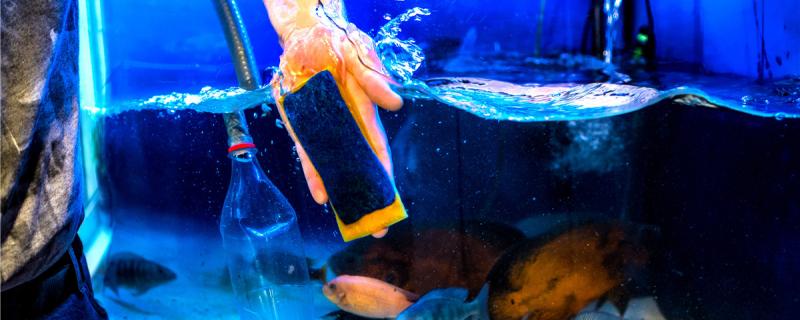 1. Trapping water in advance
1. Trapping water in advance To change the water in the fish tank, you must first trap water in advance. Because most of the water used for fish farming is tap water, this water is not polluted, but after disinfection, there will be a small amount of chlorine gas in it, which is harmful to the health of fish. Therefore, it is necessary to volatilize the chlorine gas inside by drying in the air to ensure the safety of fish.
2. Pumping waterAfter fresh water is ready, you can start changing water. First, pump out the old water in the cylinder, you can pump it with a water pump, or you can find a pipe, and pump out the water with the help of siphon method. Don't pump too much, usually change one fifth. After pumping out the old water, slowly add the prepared new water from the cylinder wall. Be careful not to pour all the water into it, so as not to cause water quality fluctuation.
3. Water change cycleUsually, there is no fixed cycle for water change, because the size of fish tanks and the density of feeding are different, so the water quality maintenance is not consistent. If the water quality deteriorates rapidly, it should be changed every three days, but the amount of water should be less. If the water quality deteriorates slowly, it can be changed once every half month, up to about one third.
IV. PrecautionsThe change of water temperature should be paid attention to when changing water. Temperature has a great influence on fish. If it is not well controlled, fish may have some stress reactions. Usually, the water temperature should be measured before changing water, and then the fresh water temperature should be adjusted according to the water in the fish tank, so that the two are consistent, thus reducing the impact on fish.